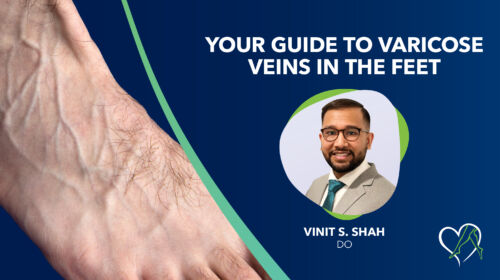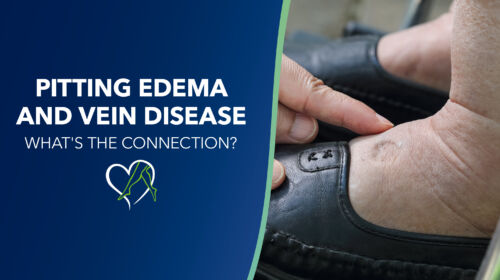

Find out why seeing a board-certified vein specialist is crucial for treating vein disease. Learn about expertise, advanced treatments, and personalized care for optimal vein health. Contact our expert vein specialist for more information!

Discover the early signs of a blood clot in the foot, including symptoms like pain, swelling, and discoloration. Reach out to our blood clot specialist today for expert treatment!

In our comprehensive guide on varicose veins in the feet, you'll learn the causes, symptoms, and potential complications of this painful condition and discover effective prevention and treatment options. Medically reviewed by CVR vein expert Dr. Vinit S. Shah, a board-certified vein specialist, this blog provides expert insights into managing varicose veins. Whether you're experiencing discomfort or want to learn more about vein health, this guide offers essential information and solutions.

Explore 7 effective tips to lower your risk of developing varicose veins from our vein specialists! Discover practical advice to keep your legs healthy and prevent vein issues, ensuring comfort and well-being. Reach out to top-rated varicose vein specialists today!

Discover how to achieve spider vein-free legs with effective treatments from our vein specialist! Enjoy smooth, beautiful legs and boost your confidence with expert advice on reducing and eliminating spider veins. Reach out to our spider veins specialist today!

Learn how to manage leg swelling during hot weather with our comprehensive guide on heat edema. Discover causes, symptoms, and effective treatment options to keep your legs comfortable and healthy. Contact our expert edema specialist for more information!

This blog explores the potential cause of Restless Legs Syndrome (RLS), risk factors that can worsen symptoms as night falls, and steps to navigating treatment options.

Do you experience swelling in your legs, ankles, or feet that leaves an indent when pressed? This could be pitting edema, a condition often linked to vein disease. This blog explores the causes, symptoms, and treatment options for pitting edema, with a particular focus on its connection to vein problems.